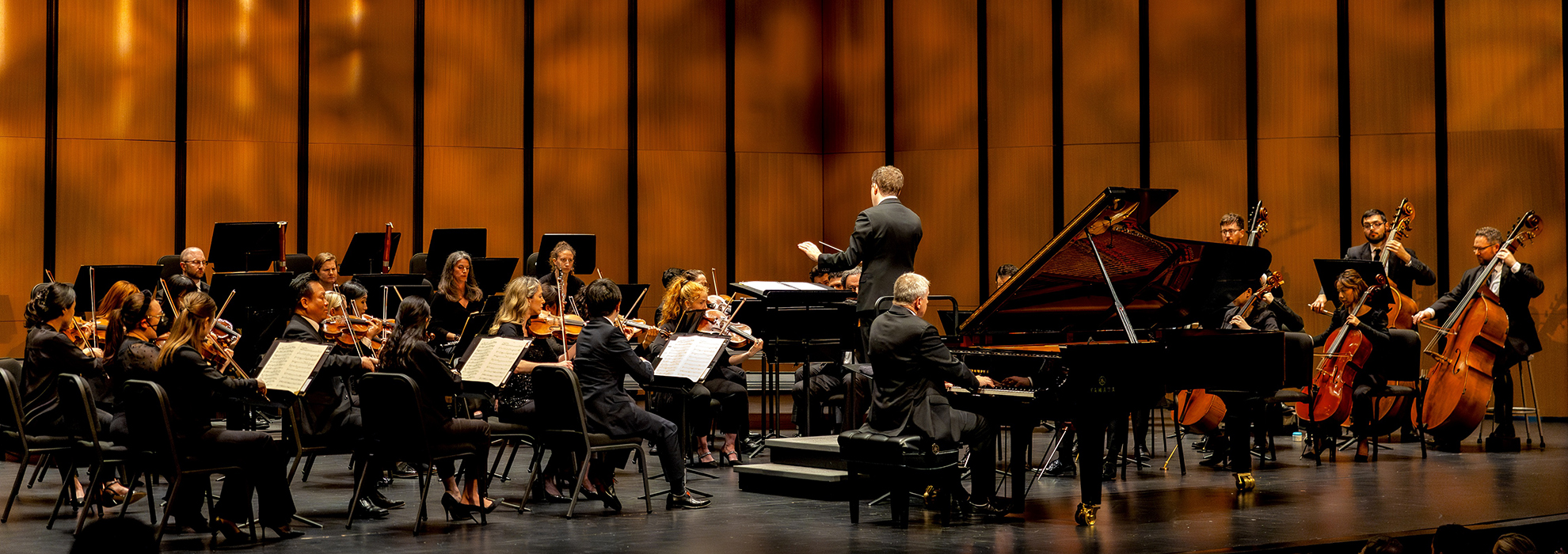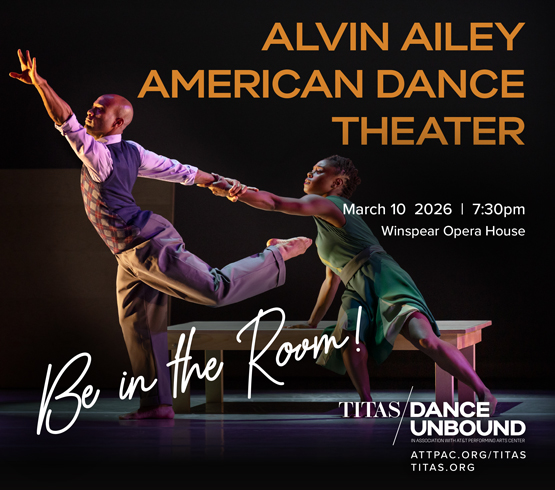Sitting at his desk on a June afternoon, Dallas Chamber Symphony Music Director and Conductor Richard McKay holds up a CD and smiles. “We just released our first album,” he says. The title, Chasing Home, references Joseph Thalken’s 2017 ballet about migrants fleeing the Syrian Civil War. “It came out well…very, very challenging music, but we’re proud of it. It’s a really nice debut album.” Paired with Copland’s original Appalachian Spring Suite, both pieces were recorded at Moody Performance Hall in Dallas, the venue that DCS has called home for more than a decade.
Dallas Chamber Symphony’s 2024-25 season contains music spanning more than 200 years in a series of six concerts, including newly commissioned works. “I’m excited about every program I’ve got this season,” says McKay. “I’m looking at them on my computer screen and reminding myself of everything that we’ve planned all year. I’ll be honest, they all look great to me.”
Pianist Christopher Goodpasture joins the DCS Nov. 19 to perform Franz Liszt’s fiery Malediction. In English, the title translates to The Curse, a name assigned by the composer for a piece so technically challenging, many pianists avoid it. McKay admits that it’s an intimidating work to perform but is a dazzling showpiece. The evening also includes Joaquin Turina’s rarely performed Rapsodia Sinfonica and Gustav Mahler’s orchestration of Death and the Maiden, a haunting work written by Franz Schubert while he was dying.
The orchestra rings in 2025 on Jan. 14 with Ottorino Respighi’s Trittico Botticelliano, a work McKay says has been on his “wish list” for years. Though it was written in the 20th century, “it’s also a bit neoromantic,” McKay explains, referencing Respighi’s sparkling musical depiction of three paintings by Italian Renaissance artist Sandro Botticelli. Violinist Sarah Ying Ma joins the orchestra as soloist in Ralph Vaughan Williams’ sublime work inspired by English poet George Meredith’s The Lark Ascending, followed by a buoyant finale of Beethoven’s Symphony No. 4.
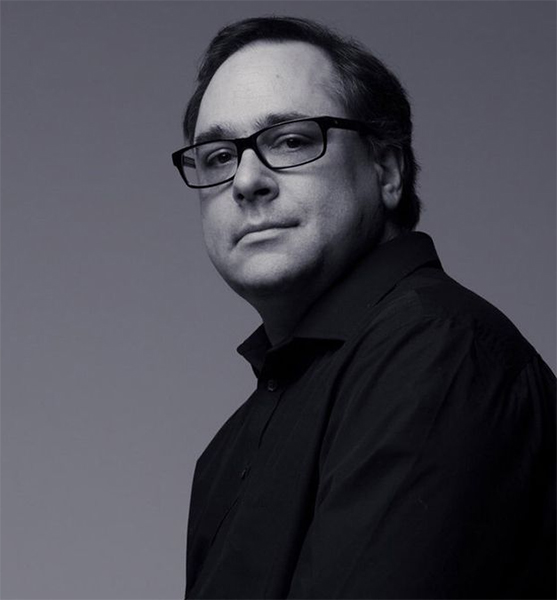
1 ⁄4
Composer Joe Kraemer; Photo courtesy of the artist.

2⁄4
Pianist Christopher Goodpasture; Photo courtesy of the artist.
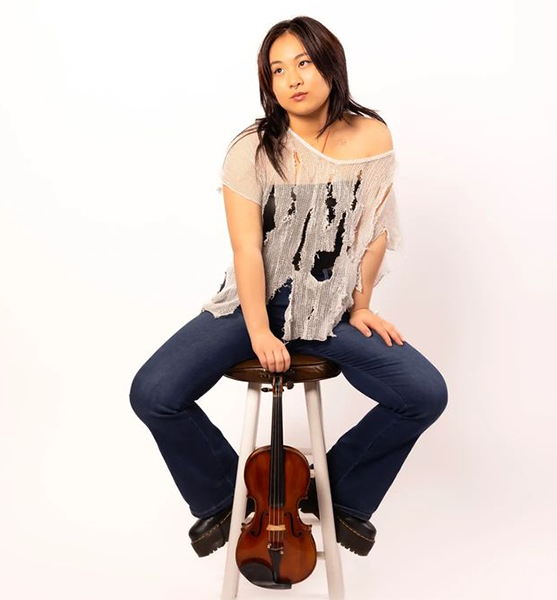
3 ⁄4
Sarah Ying Ma; Photo courtesy of the artist.
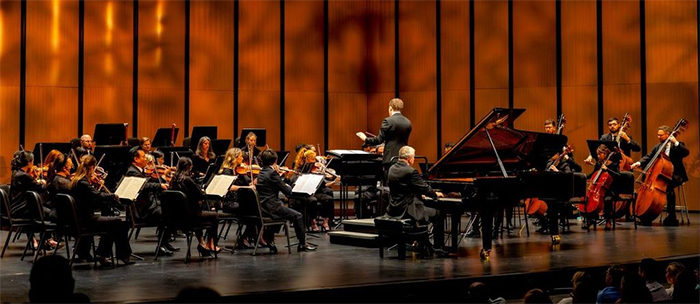
4 ⁄4
Richard McKay conducts the Dallas Chamber Symphony. Photo courtesy of DCS.
Another new commission debuts in Dallas Chamber Symphony’s final concert on Apr. 29 with an orchestral work by Joe Kraemer, whose name is often associated with scores for well-known feature films such as Mission: Impossible – Rogue Nation and Jack Reacher. The collaboration with Kraemer began last year, when DCS commissioned him to write the score for Murnau’s 1927 silent film, Sunrise: A Song of Two Humans.
“The funny thing was, he told the audience that when he heard it premiered, this was the first time that he got to hear his music performed live in a concert hall as a composer,” McKay says, explaining that as a film composer, Kraemer had only ever heard studio recordings of his work. “So we thought, ‘well, how interesting would it be to commission this composer to write something just for stage orchestra and remove the film altogether?’ So, we’ve given him carte blanche to do whatever he would like to do. This is going to be his playground for the next year.” Pianist Adam Jackson, winner of last year’s Dallas International Piano Competition, will return to perform a piano concerto (composer and piece tba), then Schumann’s Spring Symphony No. 1 serves as an appropriate closer for the April evening.
—AMY BISHOP

